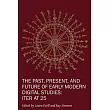The Roman poet Ovid (43 B.C.-A.D. 17) was a rock star of the newly-founded empire ruled by Caesar Augustus. A sensitive, artistic soul, his verse, focused on the art of love, attracted the Roman youth of his day and made him a celebrity in the imperial city. But while his erotic poems attracted a mass following, his profound masterpiece, Metamorphoses, deeply rooted in the legends and traditions of ancient Rome and Greece, confirmed his creative genius and established him as one of the leading literary voices of all of antiquity, forging an enduring legacy that has impacted world literature for over two millennia. At the pinnacle of his career, however, Ovid became embroiled in one of the great scandals of his day, the details of which remain shrouded in mystery, resulting in his sudden banishment from Rome in A.D. 8 at the order of the Emperor. Augustus sent the Roman bard to the farthest reaches of the empire, exiling him to the Greek port city of Tomis, on the Black Sea coast, to live out the remainder of his days. Written by the late Romanian scholar Adrian Radulescu, Ovid in Exile provides a rare and insightful look at the life and works of Publius Ovidius Naso. Radulescu studies the historical environment of the Greek city of Tomis to where the Roman poet was expatriated, discussing the impact of his exile on his life and literary work. Failing to regain imperial favor or to have his sentence commuted, Ovid spent the last eight years of his life in Tomis where he wrote two of his most important and enduring literary masterpieces, Tristia and Ex Ponto. Ovid in Exile tells the story of this remarkable man who, two thousand years after his death, remains one of the most influential figures in all of world literature. The author, Adrian Radulescu, was formerly director of the Museum of History and Archeology in Constan?a and one of Romania\u2019s foremost experts on the ancient history of Dobrogea and the life of the Roman poet Ovid.



 天天爆殺
天天爆殺  今日66折
今日66折 

























 博客來
博客來 博客來
博客來 博客來
博客來 博客來
博客來 博客來
博客來